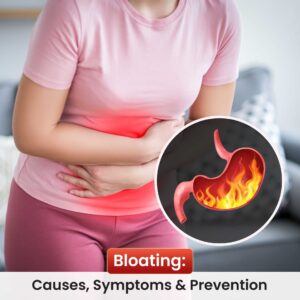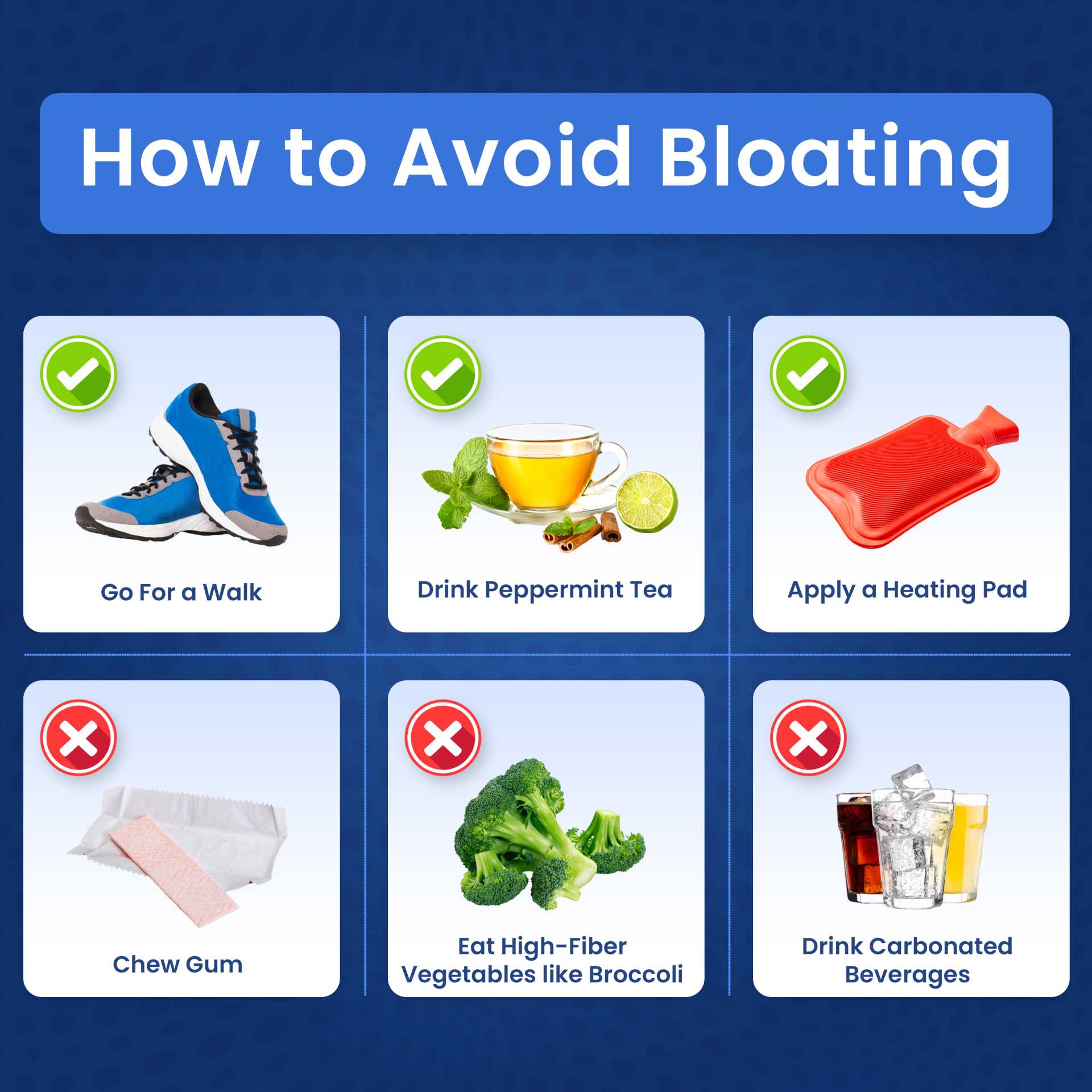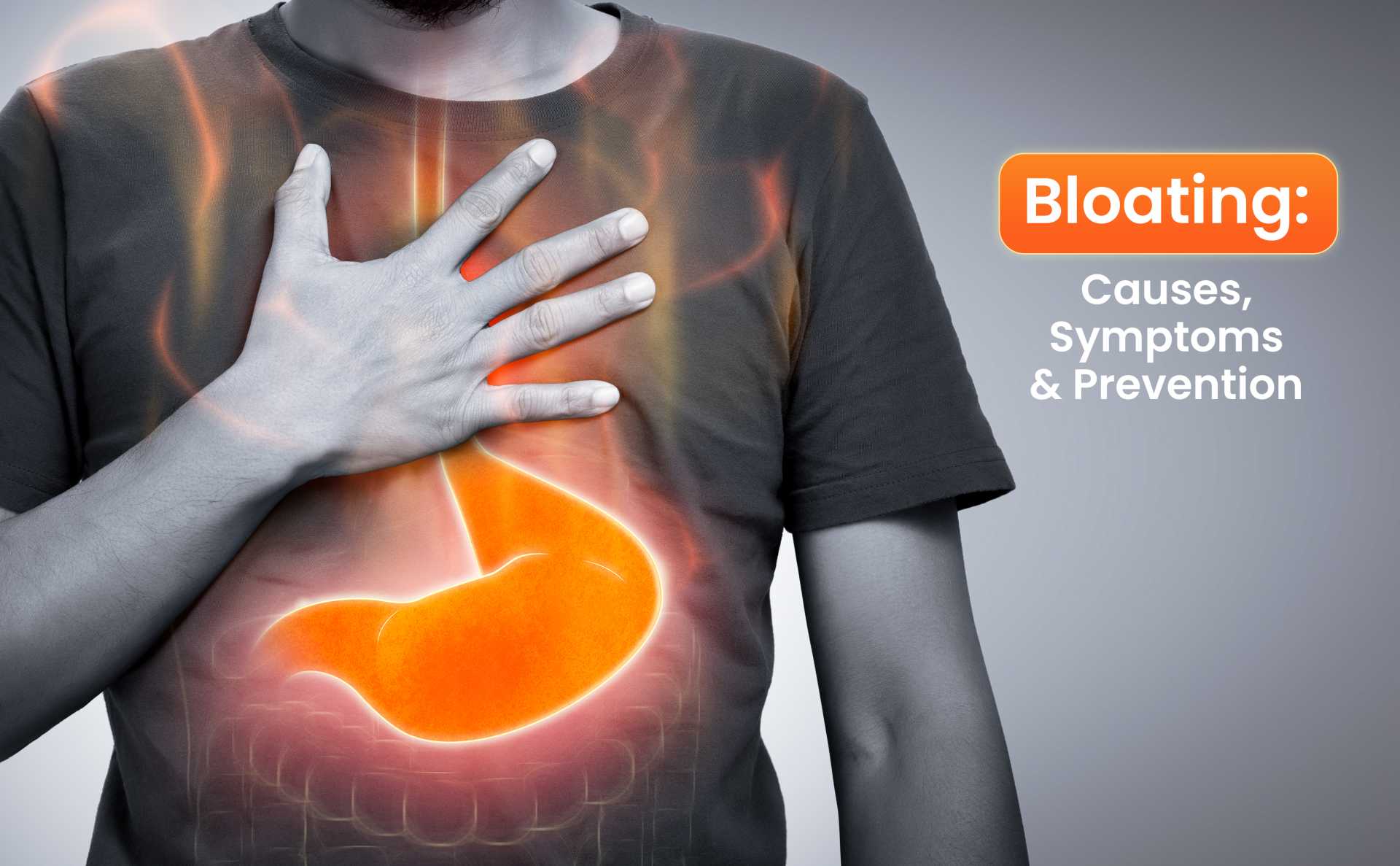What Pakistani Foods Cause Bloating?
Have you ever felt like a hot air balloon after devouring a plate of delicious Dal Chana or Rajma Chawal? Congratulations, you are suffering from bloating. Legume-laden Pakistani dishes have a knack for unleashing serious gas bombs in our digestive system. So, if you’re planning to indulge in some Chanas or Rajma Chawal, stock up on some air fresheners and apologize to your friends and family in advance for the gas attack!
What is Bloating?
Lahore’s breakfast superstar, Chana salan, made from flavorful chickpeas, is a staple dish everyone loves. But here’s the catch – these legumes (and others like lentils and kidney beans) can cause significant bloating and discomfort for some. So, while you’re savoring the mouth-watering flavors of Pakistani cuisine, make sure to listen to your body!
Bloating is a common condition in which the belly tightens or appears full due to gas. These gasses form in the large intestine when fibers, starches, and carbohydrates ferment in the large intestine. A bloated tummy appears more prominent than usual, and some people might even suffer from rumbling stomach noises. In most cases, it goes away independently but some cases might require medical care.
Symptoms of Bloating
Following are some of the common symptoms of bloating:
- A feeling of fullness or tightness in the abdomen
- Swelling or distension of the abdomen
- Abdominal pain or discomfort
- Rumbling or gurgling noises in the stomach
- Increased flatulence or farting compared to usual.
Common Causes of Bloating

Bloating can have various causes. Some common causes of bloating include:
Constipation
Bloating is often caused by constipation, which can make it challenging to start or finish a bowel movement. Constipation can lead to abdominal pain and bloating, and the longer stool stays in the colon, the more gas it produces.
Gut Sensitivity
People with Irritable Bowel Syndrome (IBS) may experience extreme sensitivity to gas, which can cause painful cramping, bloating, and diarrhea.
Small intestinal bacterial overgrowth (SIBO)
Small intestinal bacterial overgrowth (SIBO) is more common in people who have had intestinal surgery or who have IBS with diarrhea. SIBO can contribute to bloating.
Gynecological conditions
Gynecological conditions, such as issues with the ovaries or uterus, can sometimes cause bloating. Never skipping your annual pelvic exam is crucial to ensure any potential issues are caught early.
It is important to note that bloating can be a sign of an underlying issue. If you experience persistent bloating or other digestive symptoms, it’s essential to consult your healthcare provider.
Bloating Meaning in Urdu
اپھارہ ایک ایسی حالت ہے جس میں پیٹ پھول جاتا ہے اور معمول سے بڑا دکھائی دیتا ہے۔ یہ عام طور پر پیٹ کے درمیانی حصے میں محسوس ہوتا ہے۔ پھولنے کی وجوہات دودھ، پھلیاں، سبزیاں، پیٹ پھولنا اور خشک میوہ جات جیسی غذائیں ہو سکتی ہیں۔ تاہم، یہ کسی بیماری کی علامت نہیں ہے۔
Common Pakistani Foods that Cause Bloating
Here are ten common Pakistani foods that can cause bloating and a brief explanation for each:
Chana dal
Made from split chickpeas, this lentil-based dish is high in fiber and protein, but it can also cause gas and bloat due to its high content of oligosaccharides, a type of carbohydrate that can be difficult to digest.
Rajma
This kidney bean curry is a staple in many Pakistani households. While it’s a good source of protein and fiber, it can also cause bloating due to its high fiber content.
Aloo bhajiya
This popular snack made from deep-fried potatoes is tasty, but also high in fat and can cause bloating and discomfort.
Chana chaat
This popular street food is made from chickpeas, potatoes, and spices. While it’s a good source of protein and fiber, it can also cause bloating and gas due to its high fiber content.
Haleem
A slow-cooked stew made from a mixture of lentils, wheat, and meat. Although it’s a nutritious and filling dish, it can cause bloating due to its high fiber content.
Pakoras
Another popular fried snack, pakoras are made from a batter of chickpea flour and spices. They are delicious but can cause bloating due to their high-fat content.
Daal makhani
A rich and creamy lentil dish made with butter, cream, and spices. While it’s a popular and flavorful dish, it can also cause bloating due to its high-fat content.
Chana pulao
A rice dish made with chickpeas and spices. Although it’s a good source of protein and fiber, it can cause bloating and discomfort due to its high fiber content.
Samosas
Triangular-shaped savory pastries filled with spiced potatoes, onions, and meat. While they are a popular snack, they are also high in fat and can cause bloating and discomfort.
Lassi
A yogurt-based drink that is popular in Pakistan. While it’s a good source of probiotics and can aid digestion, it can also cause bloating and discomfort if consumed excessively.
| Foods That Help Reduce Bloating | Food That Makes Bloating Worse |
| Ginger | Beans and lentils |
| Pineapple | Cruciferous vegetables (broccoli, cauliflower, cabbage) |
| Papaya | Onions and garlic |
| Peppermint | Dairy products |
| Fennel | Artificial sweeteners |
| Bananas | Carbonated drinks |
| Cucumber | Fried and fatty foods |
| Watermelon | Processed foods |
| Yogurt (probiotic) | Sugary foods and drinks |
| Rice and grains (gluten-free) |

Home Remedies for Bloating
Bloating can be simply treated with some simple home remedies. Here are a few easy ways to reduce bloating.
Ginger tea
Ginger is a natural anti-inflammatory and can help ease bloating by relaxing the muscles in the gut. To make ginger tea, simply grate some fresh ginger root and steep it in hot water for 5-10 minutes. You can add honey and lemon for taste.
Peppermint oil
Peppermint oil is a natural antispasmodic and can help relieve bloating by relaxing the muscles in the gut. You can take peppermint oil capsules or add a few drops of peppermint oil to a glass of water and drink it.
Fennel Seeds
Fennel seeds are a natural carminative and can help ease bloating by reducing gas and inflammation in the gut. You can chew on fennel seeds after a meal or brew fennel tea by steeping a teaspoon of fennel seeds in hot water for 5-10 minutes.
Chamomile Tea
Chamomile is a natural anti-inflammatory that can help soothe the stomach and relieve bloating. To make chamomile tea, steep a chamomile tea bag in hot water for 5-10 minutes.
Apple Cider Vinegar
Apple cider vinegar is a natural diuretic and can help reduce water retention in the body, which can contribute to bloating. Mix one to two tablespoons of apple cider vinegar with a glass of water and drink it before or after a meal.
Turmeric
Turmeric is a natural anti-inflammatory and can help reduce inflammation in the gut, which can contribute to bloating. You can add turmeric to your meals or take turmeric supplements.
Exercise
Exercise can help stimulate the digestive system and relieve bloating. Even a 10–15-minute walk after a meal can make a difference. Here is a 5 minute magic workout for instant bloating relief.
Probiotics
Probiotics are good bacteria that live in the gut and can help improve digestion and reduce bloating. You can take probiotic supplements or eat foods high in probiotics, such as yogurt.
Hydration
Drinking plenty of water can help flush out excess salt and reduce water retention in the body, which can contribute to bloating. Aim to drink at least eight glasses of water a day. Calculate your daily water intake here!
Avoid trigger foods: Certain foods can contribute to bloating, such as beans, lentils, cabbage, onions, and carbonated drinks. If you notice that certain foods trigger your bloating, try to avoid or limit them in your diet.
Conclusion
In conclusion, bloating is a common issue that many people experience. While occasional bloating may not be a cause for concern, persistent bloating can indicate an underlying health condition. Therefore, it’s essential to identify the underlying causes of bloating and address them appropriately. Maintaining a healthy diet and lifestyle, staying hydrated, and managing stress can also help prevent bloating. If you experience persistent or severe bloating, it’s essential to consult a healthcare professional to rule out any serious health concerns. By taking proactive steps to manage the bloat, you can enjoy a happier, healthier, and more comfortable life.
Bloating FAQs
Q: What are the common causes of bloating?
A: The common causes of bloating are overeating, eating too fast, consuming gas-producing foods, constipation, swallowing air, hormonal changes, and certain medical conditions.
Q: How can I prevent bloating?
A: You can prevent bloating by eating slowly and in smaller portions, avoiding gas-producing foods, staying hydrated, exercising regularly, managing stress levels, and maintaining a healthy diet.
Q: What are some effective home remedies for bloating?
A: Some effective home remedies for bloating include drinking peppermint tea, taking probiotics, trying ginger, eating smaller and more frequent meals, and doing light exercises like yoga.
Q: When should I seek medical attention for bloating?
A: You should seek medical attention for bloating if it is accompanied by severe abdominal pain, vomiting, diarrhea, constipation, blood in the stool, or unexplained weight loss.
Q: Can bloating be a symptom of a severe medical condition?
A: Yes, bloating can be a symptom of a severe medical condition such as ovarian cancer, celiac disease, irritable bowel syndrome (IBS), inflammatory bowel disease (IBD), or liver disease. You must seek medical attention if you experience persistent or severe bloating.

